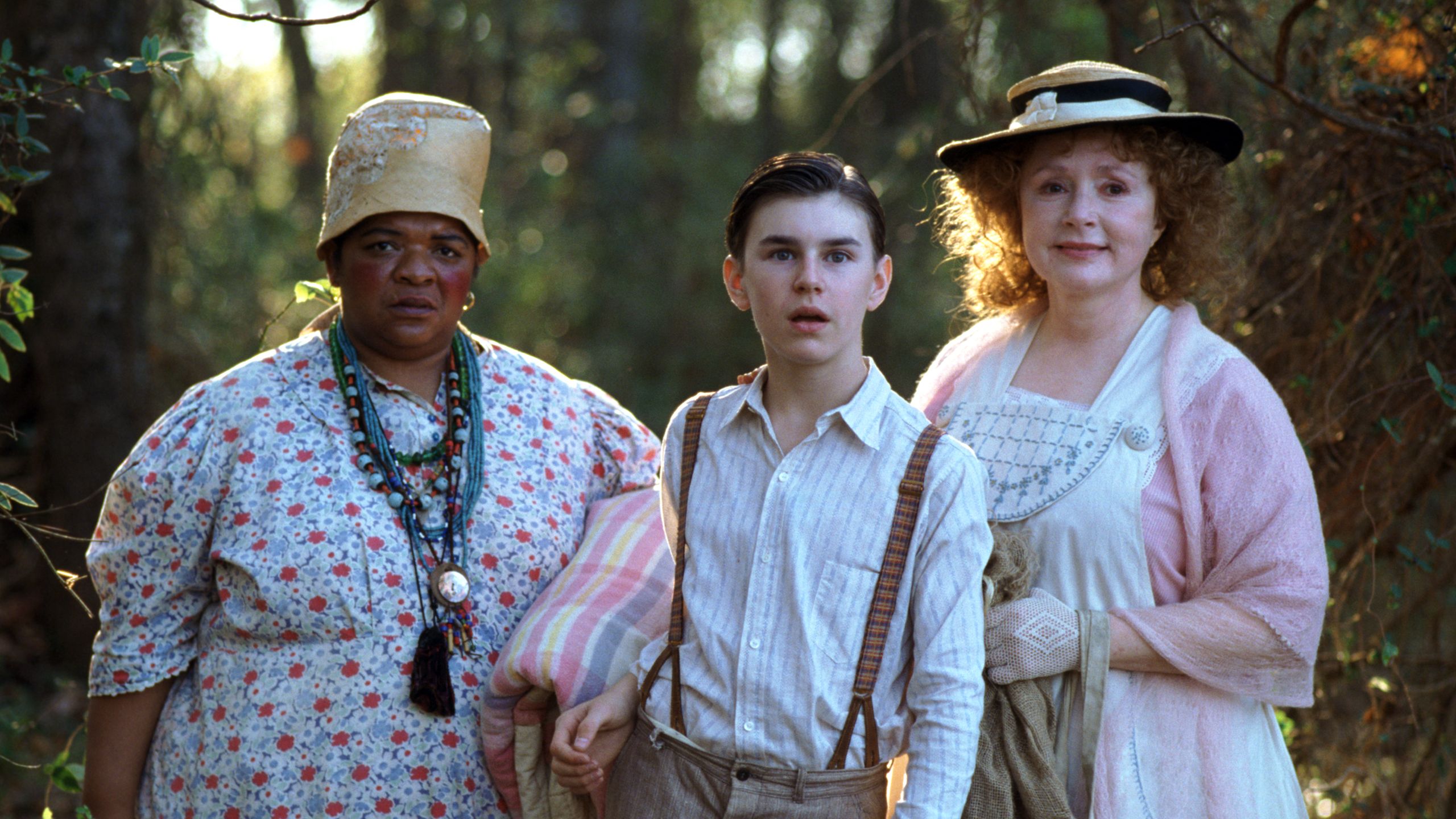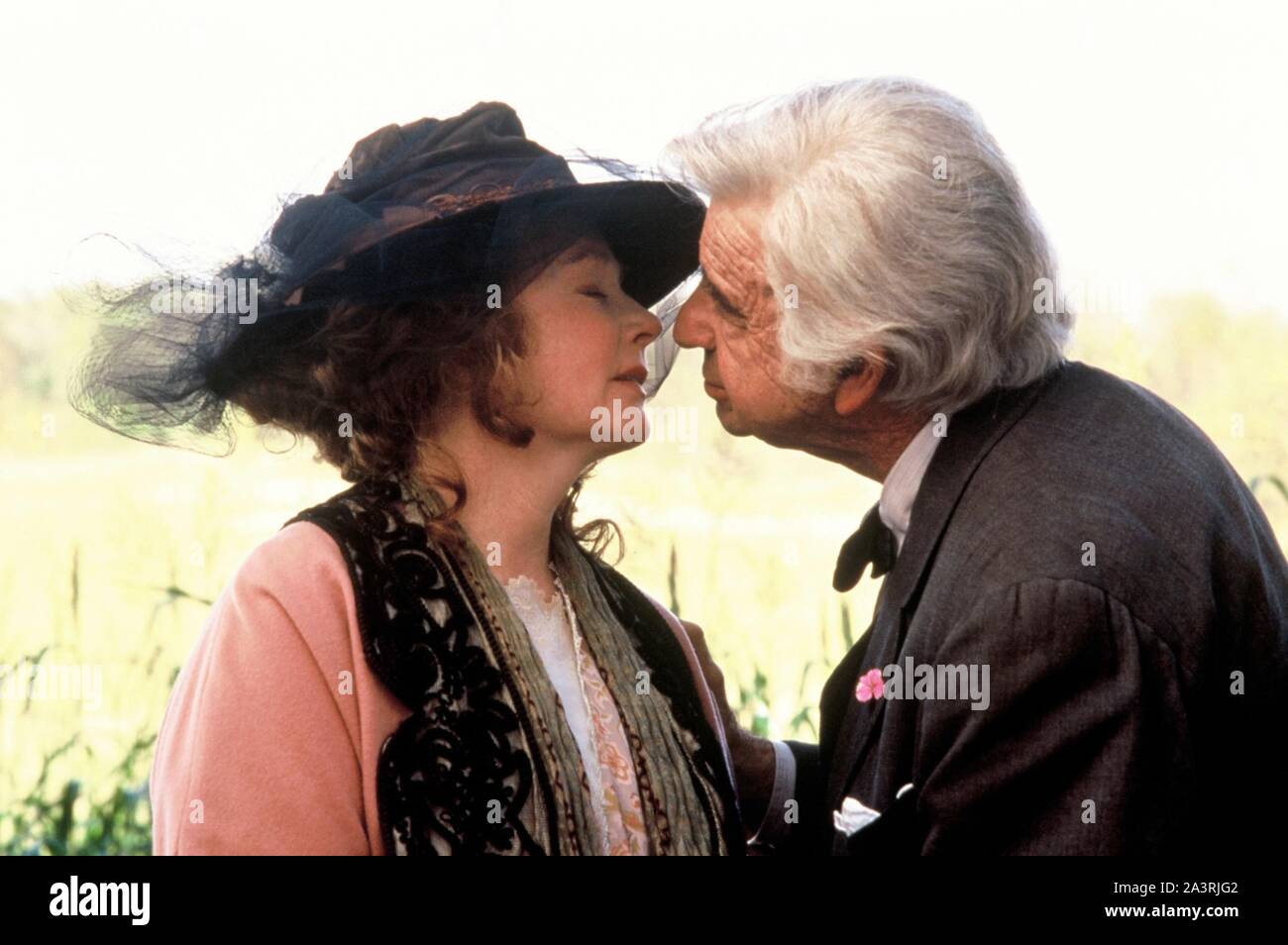← Back to Reviews
in
The Grass Harp
The recent passing of Piper Laurie motivated my first viewing of 1995's The Grass Harp a warm and emotionally charged coming of age period piece that works thanks to solid direction from a second generation artist and a spectacular all-star cast all working at the top of their game.

Based on a novel by Truman Capote, the setting is the depression era south where we meet a young man named Collin (Edward Furlong) who, after the death of his parents, is sent to live with his two spinster Aunts, the Talbo Sisters. Verena Talbo (Sissy Spacek) is this town's Elvira Gulch/Ebeneezer Scrooge, the wealthy witch who owns half the town and her sister, Dolly (Laurie) is a dreamy-eyed loner who has never been with a man and spends all her time concocting her own medicine with the assistance of the Talbo's cook and Dolly's BFF Catherine (Nell Carter). When Verena convinces a slick doctor from out of town (Jack Lemmon) to invest in patenting Dolly's medicine, Dolly, Catherine, and Collin flee the house and move into a treehouse. They are eventually joined by a retired judge (Walter Matthau), a romantic rival of Collin's (Sean Patrick Flanery) and a female evangelist with 15 children (Mary Steenburgen).

Just like Breakfast at Tiffany's this is just not the kind of story one expects from Truman Capote, but is apparently based on Capote's own childhood. The adaptation of Capote's book by Stirling Stilliphant (In the Heat of the Night) and Kirk Ellis, who wrote the miniseries John Adams is rich with small town sensibility and is a little on the manipulative side, setting up some definite black hats and white hats in the story, but the manipulation totally works.

Walter Matthau's son, Charles is in the director's chair for this one, who you might remember from his film debut playing Glenda Jackson's son in his father's film House Calls. According to the IMDB, Charles has 8 directorial credits but he proves that he may have found his real niche in this business, crafting a nostalgic look at a time gone by, a very turbulent time where racism was still an issue and it is addressed here, but it doesn't overpower the story and is not pounded over our heads with a sledgehammer.

Charles Matthau also manages to pull some remarkable performances from this sparkling all-star cast. Sissy Spacek's icy Verena is a revelation because it's the first time I can recall in her long and distinguished career that she has played the straight up villain of the piece and she crushes it. The director's dad is terrific as the judge as are Roddy McDowell as a gossipy barber, Joe Don Baker as the Sheriff, Charles Durning as the preacher, and Bonnie Bartlett as his wife. But it's the gifted Piper Laurie, who actually is the standout in this amazing cast as the fragile and vulnerable Dolly, reminding me again what an incredible actress this woman was who never had the career she deserved. She's Oscar-worthy here and this film is appointment viewing for serious acting students.
The recent passing of Piper Laurie motivated my first viewing of 1995's The Grass Harp a warm and emotionally charged coming of age period piece that works thanks to solid direction from a second generation artist and a spectacular all-star cast all working at the top of their game.

Based on a novel by Truman Capote, the setting is the depression era south where we meet a young man named Collin (Edward Furlong) who, after the death of his parents, is sent to live with his two spinster Aunts, the Talbo Sisters. Verena Talbo (Sissy Spacek) is this town's Elvira Gulch/Ebeneezer Scrooge, the wealthy witch who owns half the town and her sister, Dolly (Laurie) is a dreamy-eyed loner who has never been with a man and spends all her time concocting her own medicine with the assistance of the Talbo's cook and Dolly's BFF Catherine (Nell Carter). When Verena convinces a slick doctor from out of town (Jack Lemmon) to invest in patenting Dolly's medicine, Dolly, Catherine, and Collin flee the house and move into a treehouse. They are eventually joined by a retired judge (Walter Matthau), a romantic rival of Collin's (Sean Patrick Flanery) and a female evangelist with 15 children (Mary Steenburgen).

Just like Breakfast at Tiffany's this is just not the kind of story one expects from Truman Capote, but is apparently based on Capote's own childhood. The adaptation of Capote's book by Stirling Stilliphant (In the Heat of the Night) and Kirk Ellis, who wrote the miniseries John Adams is rich with small town sensibility and is a little on the manipulative side, setting up some definite black hats and white hats in the story, but the manipulation totally works.

Walter Matthau's son, Charles is in the director's chair for this one, who you might remember from his film debut playing Glenda Jackson's son in his father's film House Calls. According to the IMDB, Charles has 8 directorial credits but he proves that he may have found his real niche in this business, crafting a nostalgic look at a time gone by, a very turbulent time where racism was still an issue and it is addressed here, but it doesn't overpower the story and is not pounded over our heads with a sledgehammer.

Charles Matthau also manages to pull some remarkable performances from this sparkling all-star cast. Sissy Spacek's icy Verena is a revelation because it's the first time I can recall in her long and distinguished career that she has played the straight up villain of the piece and she crushes it. The director's dad is terrific as the judge as are Roddy McDowell as a gossipy barber, Joe Don Baker as the Sheriff, Charles Durning as the preacher, and Bonnie Bartlett as his wife. But it's the gifted Piper Laurie, who actually is the standout in this amazing cast as the fragile and vulnerable Dolly, reminding me again what an incredible actress this woman was who never had the career she deserved. She's Oscar-worthy here and this film is appointment viewing for serious acting students.
